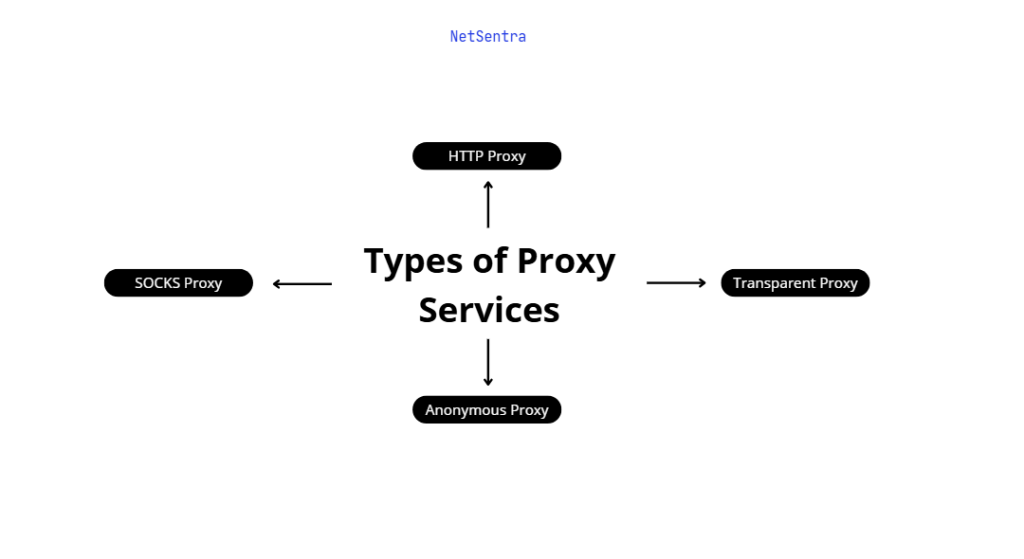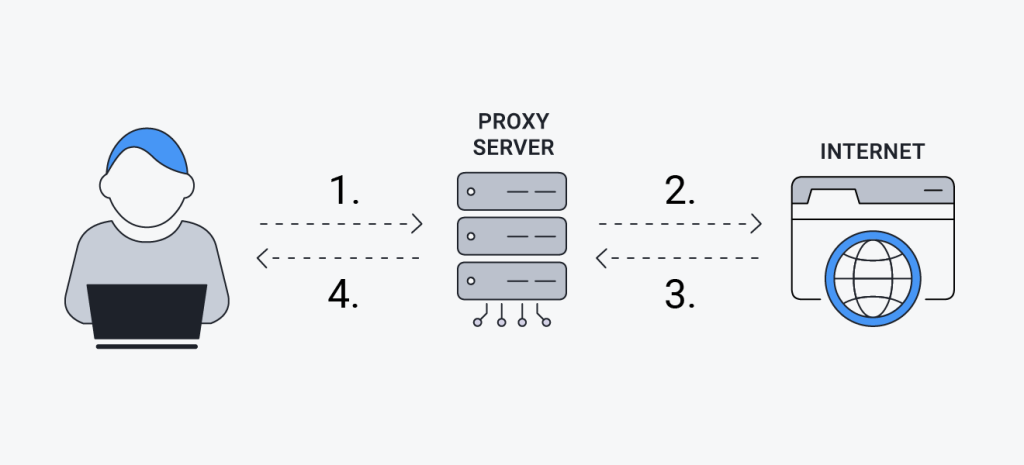In today’s digital world, online privacy is crucial. One of the most popular tools for maintaining privacy is proxy. But what are they, and how do they work? This article will explain everything you need to know about proxy services.

🔍 What Are Proxy Services?
A proxy service acts as an intermediary between your device and the internet. It routes your internet traffic through a remote server, masking your IP address and providing a degree of anonymity. Learn more about proxy servers on Wikipedia.
🌐 Types of Proxy Services
1. HTTP Proxy
- Used for web traffic.
- Suitable for accessing websites.
2. SOCKS Proxy
- Supports multiple protocols (HTTP, FTP, etc.).
- Suitable for online gaming, video streaming, and other apps.
3. Transparent Proxy
- Doesn’t hide your IP address.
- Often used by organizations for monitoring.
4. Anonymous Proxy
- Hides your IP but may identify itself as a proxy.
5. High-Anonymity Proxy
- Completely hides your IP without revealing that it is a proxy.

🛡️ Benefits of Using Proxy Services
- 🌍 Access region-locked content.
- 📊 Save bandwidth through caching.
- 🔒 Improve privacy and security.
❌ Limitations of Proxy
- 🔓 No encryption (unlike VPNs).
- 📉 May reduce connection speed.
- ❌ Doesn’t protect from malware or phishing.
📊 Who Should Use Proxy Services?
- Users who want to access region-locked content.
- Businesses that need to monitor employee activity.
- Those who want to reduce bandwidth usage.
📌 Learn More
🌐 Why You Should Consider Using a VPN
If you’re interested in protecting your online privacy, you might also want to learn more about what a VPN is and why you need one in 2025. A VPN can help you secure your connection, bypass geographic restrictions, and protect your sensitive data from hackers and surveillance. Read our detailed guide here.

Conclusion
Proxy services offer a convenient way to improve your online privacy and access restricted content. However, they are not a complete solution for security. In the next article, we will review the best proxy services available.